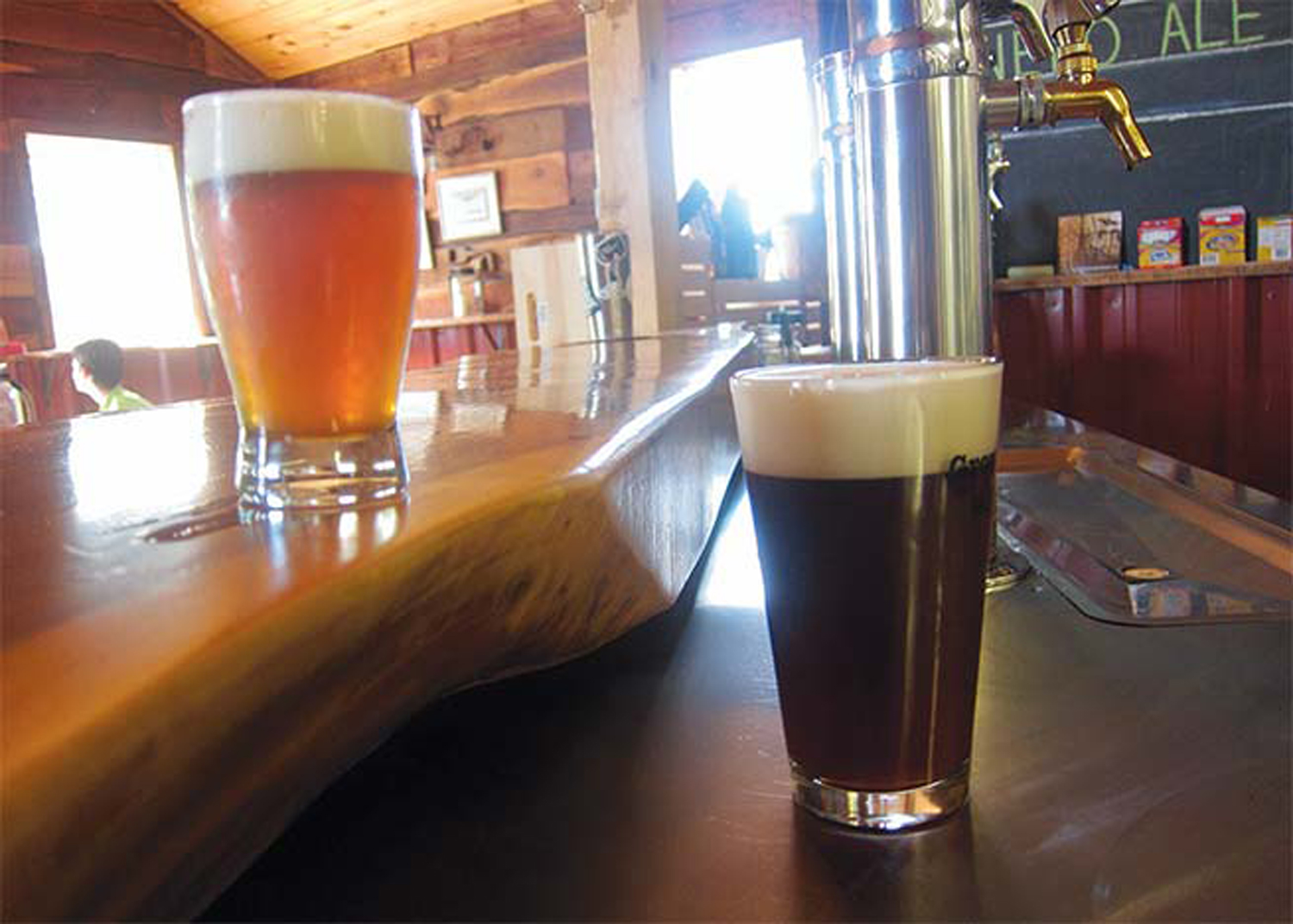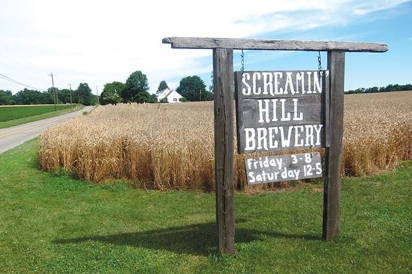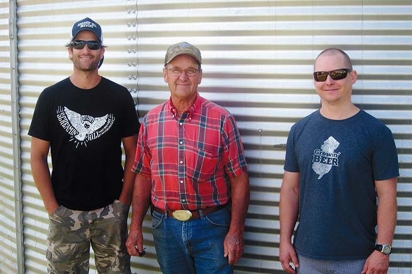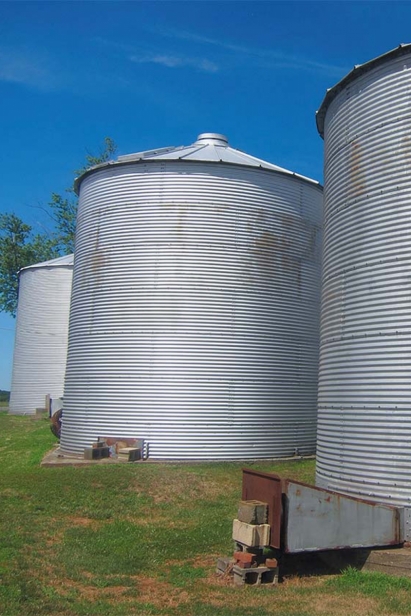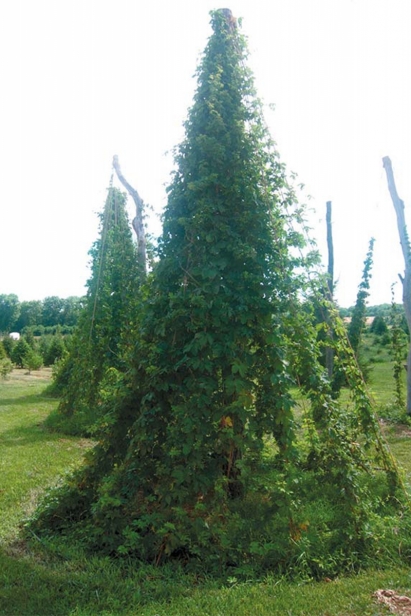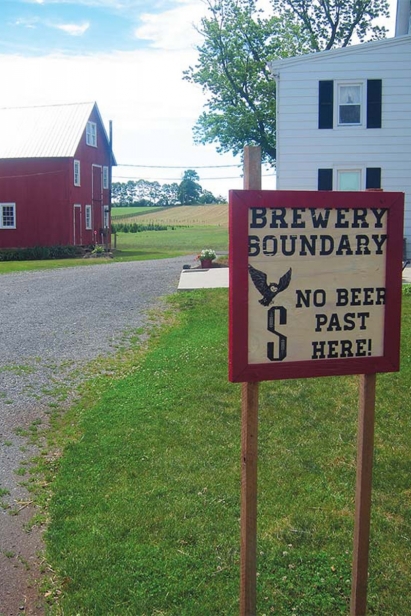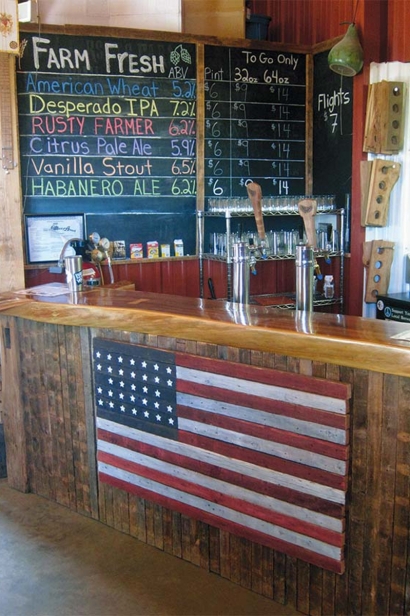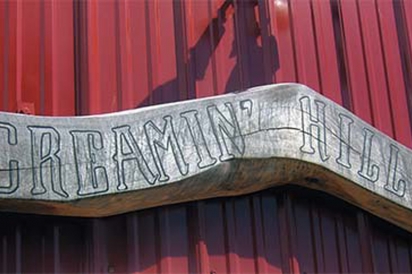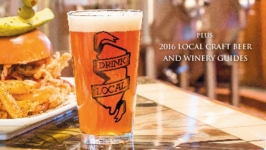Screamin’ Hill Brewery at Bullock Farms
From Grain to Glass
A round the turn of the last century in a town called Cream Ridge, the Coward family had two boys who were known around town as a pair of hellraisers. One day, one of the brothers found God. He became a fervent preacher at the little church on top of the hill, right near the Bullock family farm. From then on, every Sunday morning, locals could hear his loud and boisterous sermons for up to a mile away.
Eventually, the Bullocks, along with almost everyone else in the area, came to refer to the spot as “Screamin’ Hill.” Today, Emley’s Hill Methodist Episcopal Church still stands at the top of the hill near Bullock Farms, though the ear-splitting sermons have long since ceased. Yet the story of “Screamin’ Hill” continues—this time as a tale of how a local farm brewery is making farm-to-tap beers, growing the grain that ends up in the pint glass.
Screamin’ Hill Brewery is housed in a restored 19th-century barn on Bullock Farms, overlooking the rolling hills and open farmland where the barley, wheat, rye and hops are grown for farmhousestyle American ales. Screamin’ Hill is the first and currently the only brewery in the Garden State to cultivate its own ingredients.
“We grow seven different varieties of hops, and we grow our own barley, wheat and rye,” says Brett Bullock, a sixth-generation farmer and co-founder of Screamin’ Hill. “Most of our recipes primarily use barley, so with this season’s harvest we should have 90 percent of the grain coming from the farm. And then we grow some ancillary stuff for the seasonals that we make, such as habanero peppers for the Habanero Ale or raspberries for the Black Raspberry Wheat Ale. We also have a big pumpkin business in the fall, so we obviously put fresh pumpkin in the Pumpkin Ale.”
Bullock, together with brother-in law Patrick Jones and longtime friend Ryan Cole, had been home-brewing beer for more than a decade when the three decided that their passion for brewing might help ensure the future of the 100-acre family farm, which has been owned by the Bullock family since 1860.
Bullock had been working the farm with his father, Marty Bullock, and his uncle, Rick Bullock, for years when he approached them with the brewery idea. He expected some resistance, since neither of the men liked beer at all. However, he was surprised to find that his father and uncle were enthusiastic and needed little convincing— mostly because it seemed a natural fit for a grain-producing farm.
The brewery and tasting room, which opened in July 2015, reflect the “upscale rustic” style currently popular with restaurants and bars. Reclaimed wood covers the walls; there are Mason-jar light fixtures. The bar itself is made from a black walnut tree that once stood on the land but was struck by lightning almost 40 years ago.
Despite their appreciation for the farm’s past, Bullock, Jones and Cole seem to be dedicated to a simple question: Just how much can they source for their beers from the farm? This has led to multiple experiments to discover what is possible. Some ingredients still come from outside the property: Many varieties of hops still need to be purchased, as they are either proprietary or cannot be grown in enough quantities on the farm, and the brewing yeast needs to be purchased. But the three brewers are steadily increasing the percentage of ingredients they source directly from the premises.
“All of the water used in making the beer comes from the farm’s well water, and the grain comes mostly from what we produce,” says co-owner Ryan Cole. “We use almost 18 different varieties of hops now, so we’ll never be able to grow that much of our own. But our plan is to see which ones grow the best in this area and grow as much of those as we can.”
Cole points to the three-year old Chinook, Columbus, Cascade, Centennial, Willamette, Nugget and Mount Hood hop vines climbing in teepee-like shapes in the field. “We’ll always play with different varieties,” he comments. “But it looks like we’ll have a lot of Columbus this year.”
Although Screamin’ Hill’s brewers have been able to source three out of the four essential ingredients for beer directly from the farm, they do not have their own yeast strain—yet. “We’ve been doing experiments with a friend who has a lab, and we found a few wild yeasts from the farm that did ferment sugars,” says Cole. They couldn’t use them because they didn’t like the flavor and aroma, but they believe they will uncover the right yeast strain eventually.
If they succeed, Screamin’ Hill may very well be the first brewery to develop a New Jersey beer that truly cannot be duplicated anywhere else. It would have its very own “terroir,” complete with grain, water, hops and local yeast, along with the other ingredients they currently grow and use, such as the raspberries and pumpkin.
So far, what the venture has already grown and brewed has been successful; locals and travelers alike are seeking out its regular beers, such as American Wheat and Desperado IPA, as well as its seasonals, including the Rusty Farmer (a hybrid between an American amber and an Irish red ale) and its fall standard, Pumpkin Pickin’ Ale.
“Our biggest problem is keeping up with demand, wondering about expansion and if and when we should do that,” says Cole. “But it’s a problem we like to have.”
However, growing your own ingredients isn’t without its challenges. In addition to a small brewery’s typical concerns, such as having enough supply on hand for consumers and complying with New Jersey’s strict laws regulating the industry, Screamin’ Hill has had some unique issues to deal with.
“The biggest risk is, if you have a bad season, you don’t have ingredients,” says Bullock. “With malting barley, it has to be of a certain quality and it has to test within certain parameters in order to be malted. For example, last year was a terrible year, and we had to get rid of all of our barley, selling it for feed.”
There’s also the factor of cost. Screamin’ Hill has to send all of its barley out to a malting house for processing, and because malting is typically done for companies that require very large amounts, their cost per batch is much less than the comparatively tiny volume Screamin’ Hill requires. Growing the ingredients also means an additional investment in time and labor, which often slows other aspects of the brewery’s growth.
“I know we’d also like to do wholesale, selling to bars and maybe bottling some of our beers in our future,” says Cole. “We’re also looking into barrel-aging some of our beer. But we just can’t at this moment, because we have the harvest to get through.”
The brewery also faces another challenge that many farms embracing agrotourism face—not everyone who visits respects the fact that it is located on a working farm.
“We don’t want it to become a tourist trap or an amusement park, having kids running around unsupervised and people trampling the land,” explains Bullock. “We do want people to come to the farm, pick pumpkins and learn about agriculture, and I think that the brewery goes along with that. We also don’t want it to get too big, either. We want to keep it small and quaint and appropriate to the farm. It’s a tough balance.”
In keeping with its careful vision for the future, Screamin’ Hill has a variety of practices that support recycling and sustainability. All of the brewing equipment runs on electric power, not natural gas, and very little material in the brewing process goes to waste.
“Everything gets reused here, really,” explains Cole. “All spent grain goes to a local dairy farmer for feed; anything that we don’t want to go down the drain goes to the cows. We collect all our waste water in a holding tank—except for the bathroom—which gets conditioned and goes back out into the field to be used for irrigation.”
Although the farm itself is not organic, the Bullock family does practice integrated pest management and no-till cultivation (an agricultural technique that avoids plowing and is believed to conserve water, reduce soil erosion and use less fossil fuel) on all of its crops.
Despite the enormous challenge of getting all the individual parts of this concept to move together smoothly, it’s part of what makes this brewery’s story incredibly unique. As Bullock comments, “This brewery is one huge labor of love.”
Screamin’ Hill Brewery
83 Emley’s Hill Rd, Cream Ridge
609.401.2025
screaminhill.com


